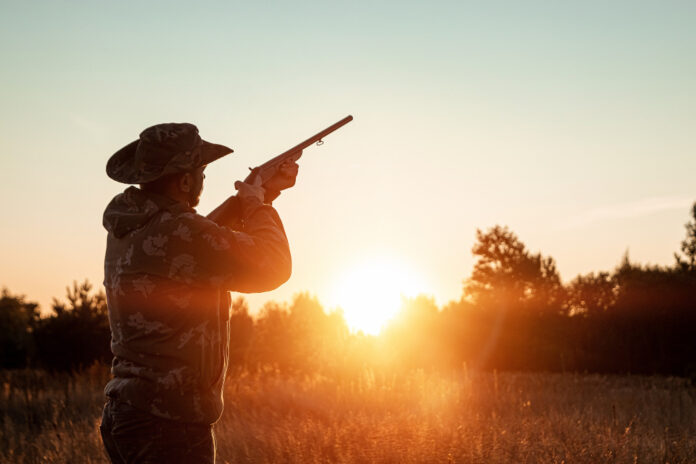Mastering the art of hunting requires far more than just knowing how to shoot. It calls for discipline, patience, and thorough awareness of the surroundings and wildlife. Experienced hunters have a broad skill set including tracking, weapon usage, and adapting to various conditions in the field. These skills guarantee a successful, ethical hunt, therefore strengthening survival instincts and connecting one to nature. This guide covers the essential skills that every hunter should learn in order to become adept, knowledgeable, and efficient in the wild, with each hunting experience combining preparation, awareness, and respect for the environment.
1. Tracking: Understanding and Following Animal Signs in the Wild
Tracking is an essential skill for hunters because it requires identifying and following animal signs to locate targets effectively. Mastering tracking involves knowing several indicators of an animal’s recent presence, including footprints, scat, and disturbed foliage. Recognizing different types of animal tracks and distinguishing between fresh and older ones takes practice, but it is a skill that becomes intuitive with time. Furthermore, understanding these indicators will help hunters evaluate the pace, direction, and behavior of the animal, thereby enabling important knowledge of its habits and strategic planning of their approach. By staying in tune with their environment, hunters who specialize in tracking may reduce unnecessary movement and save energy, therefore improving their chances of a successful hunt.
2. Weapon Handling and Accuracy: Ensuring Reliable Shots with Skill and Control
Proficient weapon handling is essential in hunting because it determines not only the success of each shot but also the safety and ethical practices. Hunters must learn to control their weapons with accuracy to guarantee that their shots are exact and thereby prevent unnecessary harm to the target. Knowing the weight, recoil, and range of the weapon helps hunters to estimate distances and aim precisely under different circumstances. By providing hunters with constant feedback after every shot, features like an auto reset trigger aid enhance accuracy during training by enabling hunters to adjust their aim and build greater control. This precision guarantees a compassionate and ethical approach to hunting and reduces the need for several shots. Regular practice and meticulous attention to detail help hunters develop their weapon handling and accuracy, therefore boosting their confidence in their capacity to perform in any situation.
3. Patience and Stealth: Remaining Undetected in Challenging Environments
In hunting, patience, and stealth are crucial as animals have strong senses and can quickly identify motion or sounds. Essential elements of stealth include learning to move slowly, control breathing, and remain still for extended periods. Animals might be alerted to the slightest sound or movement and escape. Timing also depends on patience, as hunters must frequently wait for an ideal opportunity to strike. This skill requires the ability to remain calm and focused in the face of physical discomfort or fatigue caused by waiting in position. Since patience and stealth require a higher level of discipline and focus, many hunters find that mastering these skills requires mental endurance. By honing these abilities, hunters may approach their target undetectably, therefore increasing the success of their hunt with minimal impact on the natural environment.
4. Field Dressing: Properly Preparing Game for Transport and Consumption
Field dressing is an important skill for hunters because it involves preparing the game in a way that keeps the meat safe and free of contamination. To reduce wastage and preserve the meat, this procedure calls for both anatomical understanding and effective methods. The procedure starts right away after a successful hunt and consists of removing internal organs, cooling the carcass, and ensuring cleanliness throughout. To prevent damaging the meat, proper field dressing calls for sharp instruments, steady hands, and a calm approach. This ability guarantees that nothing is wasted and fulfills the ethical values of hunting, therefore making the meat safe for consumption. Learning effective field dress helps hunters to manage their harvest appropriately, therefore conserving it for transportation and later use.
5. Navigational Skills: Knowing the Terrain and Adapting to Environmental Changes
Any hunter, especially in far-off or unknown environments, must have basic navigational skills. Reading topographic maps, identifying landmarks, and remaining orientated with a compass or GPS help one to understand the topography. Navigational abilities also call for flexibility, as hunters may come across unanticipated changes in terrain or temperature that affect their intended path. Hunters who have developed these abilities may safely explore various hunting grounds, therefore reducing their risk of being lost or stuck. Using natural cover and viewpoints, navigational awareness also helps hunters choose the optimum places for spotting wildlife. Hunters with strong navigational skills are well-prepared for any terrain, allowing them to concentrate on the hunt rather than on finding their way back.
Conclusion
These essential skills are the foundation for responsible and effective hunting. From tracking and precision to patience and navigation, every element contributes to a successful and ethical hunting experience, thereby cultivating a great respect for the environment and the hunt itself. Hunters who develop these abilities equip themselves to meet the demands of the wild, therefore improving their connection to the environment and the hunt.
